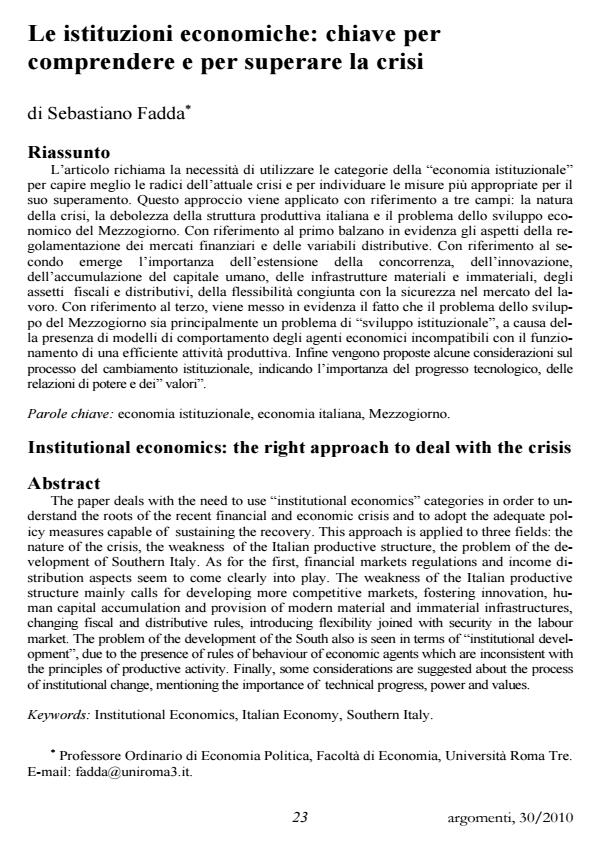Institutional economics: the right approach to deal with the crisis
Journal title ARGOMENTI
Author/s Sebastiano Fadda
Publishing Year 2011 Issue 2010/30
Language Italian Pages 16 P. 23-38 File size 177 KB
DOI 10.3280/ARG2010-030002
DOI is like a bar code for intellectual property: to have more infomation
click here
Below, you can see the article first page
If you want to buy this article in PDF format, you can do it, following the instructions to buy download credits

FrancoAngeli is member of Publishers International Linking Association, Inc (PILA), a not-for-profit association which run the CrossRef service enabling links to and from online scholarly content.
The paper deals with the need to use "institutional economics" categories in order to understand the roots of the recent financial and economic crisis and to adopt the adequate policy measures capable of sustaining the recovery. This approach is applied to three fields: the nature of the crisis, the weakness of the Italian productive structure, the problem of the development of Southern Italy. As for the first, financial markets regulations and income distribution aspects seem to come clearly into play. The weakness of the Italian productive structure mainly calls for developing more competitive markets, fostering innovation, human capital accumulation and provision of modern material and immaterial infrastructures, changing fiscal and distributive rules, introducing flexibility joined with security in the labour market. The problem of the development of the South also is seen in terms of "institutional development", due to the presence of rules of behaviour of economic agents which are inconsistent with the principles of productive activity. Finally, some considerations are suggested about the process of institutional change, mentioning the importance of technical progress, power and values.
Keywords: Institutional Economics, Italian Economy, Southern Italy
Sebastiano Fadda, Le istituzioni economiche: chiave per comprendere e per superare la crisi in "ARGOMENTI" 30/2010, pp 23-38, DOI: 10.3280/ARG2010-030002